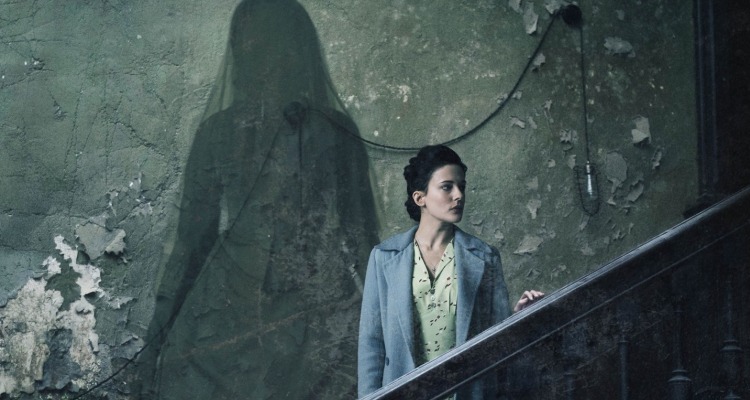 (2 / 5)
(2 / 5)
Though Halloween has long since passed, it’s the perfect time of year for a ghost story. As such, we bid a welcome – if somewhat wary – return to cinema’s most recognizable poltergeist: the Woman in Black.
The Woman in Black: Angel of Death picks up much where we left off: on the train tracks, albeit huddled on the Tube at the height of the London Blitz.
Set some forty years after the events of the original film, which was based on Susan Hill’s book of the same name, the sequel uses its temporal setting as an excuse to evacuate a van-load of school kids to the isolated, now long-deserted Eel Marsh House; a veritable banquet for our child-obsessed spook. It’s now the turn of schoolmarm Eve Parkins (Phoebe Fox) to wander those shabby halls, to venture into that terrifying nursery, and battle for the souls of her wards, one traumatized tot in particular.
Angel of Death, however, feels perilously similar to James Watkins’ 2012 installment. More a rehash than an entity in its own right: the film constantly seems to be poking at you as if to say, “Remember that, that was creepy, right?” Eve, with her sad, secretive smile, is hiding her own loss, as is gallant airman Harry (Jeremy Irvine), but Jon Croker’s screenplay never manages a coherent thesis. Is the moral never to give up on our loved ones, at any cost, or to find a way to move on, to build a new family?
Also, with the village of Criffin Gifford essentially written out – save for one random, ultimately unexplained lunatic – the film lacks a sense of world, of context.
Despite Tom Harper’s competent direction, Woman in Black: Angel of Death devolves into a series of jump scares and telegraphed set pieces – the former of which often come in quick succession. There’s no sense of progression either in terms of the franchise, but there can’t be: this is ultimately a very restrained slasher flick.
She might not be wielding claw-gloves or wearing a hockey mask, but poor, hateful Jeanette Humphries now falls firmly into the camp of Freddie, Jason, et al. Meanwhile, Helen McRory’s starchy headmistress and Adrian Rawlins’ retired army man are just there to round out the numbers.
Woman in Black: Angel of Death lacks the courage of its (Hammer) horror convictions. There’s a more interesting story here, one about grief and loss, but, like the eponymous specter, it vanishes amidst the trees.
